From Antwerp to Aleppo -- and back: Europe's nightmare
- At least 250 individuals are believed to have left Belgium to wage jihad in Iraq and Syria
- Analyst Pieter Van Ostaeyen says would-be fighters help each other with travel advice through social media
- ISIS has made it clear it plans to send fighters to Europe, once western forces are "defeated"
- At least 250 individuals are believed to have left Belgium to wage jihad in Iraq and Syria
- Analyst Pieter Van Ostaeyen says would-be fighters help each other with travel advice through social media
- ISIS has made it clear it plans to send fighters to Europe, once western forces are "defeated"
(CNN)In
January 2014, 22-year old Redouane Hagaoui left his home in the Belgian
town of Verviers. He was due to travel to Morocco to see his
grandparents, but never arrived. Instead, Hagaoui went to Istanbul,
called his family from somewhere in Turkey, and then vanished into
Syria.
His family and friends were stunned. One friend told the local newspaper SudInfo: "He doesn't even speak Arabic very well."
On
Friday, the day after Belgian police killed two extremists during a
raid in Verviers, a CNN crew met Hagaoui's mother and sister at her
home, just a few hundred yards from the scene of the shoot-out. At the
time, Belgian media were suggesting he may have returned to Verviers and
been killed in the police raid.
They
were too upset to talk; at that moment, they had no idea whether
Redouane was alive or dead. The imam of the local mosque, Franck Hensch,
told CNN they had not seen Redouane since 2013. He had been a serious
but kind boy and had worked in a local restaurant, the imam said.
Hensch
and the president of the mosque M'Hamed Bouchlagham said that extremism
was not common among Muslims in Verviers but that fewer young people
were attending the mosque and instead were being influenced elsewhere.
While
the identities of the two men killed in the police raid have not been
disclosed, it now seems Hagaoui is still alive and likely still in Syria
or Iraq -- one of dozens of young Belgian men and women who have left
their dreary, industrial towns to wage jihad in Iraq and Syria.
A
recent study by the Brookings Institution in Washington estimated that
at least 250 individuals have left Belgium -- fewer than the number from
Britain and France but the highest in Europe when measured per capita.
Other sources put the number above 300.
One
of them posted a photograph of himself brandishing an automatic weapon
and with an ammunition belt round his neck. Calling himself Fayssal
Oussaih, he said he came from Maaseik, a small town on the Dutch border.
He was reportedly the fourth resident of Maaseik to leave for Syria.
Jihadists' travel tips
Another
Belgian jihadist with a high profile is Abdelhamid Abaaoud, a
27-year-old Belgian of Moroccan descent from a suburb of Brussels. An
ISIS video posted in March last year shows him in a truck towing four
dead bodies away in the aftermath of a massacre. Abaaoud's 13-year old
brother also arrived in Syria later -- to become reputedly the youngest
foreign fighter there.
Belgian analyst and historian Pieter Van Ostaeyen says jihadists help each other with travel advice through social media.
One
posted on Facebook: "Everything you need is available here, be it
clothes or things for your home, we have everything." And a tip: "Don't behave like a warrior. Shave your beards, behave like tourists and buy tickets back and forth."
Precise
figures on the number of Europeans who have gone to Iraq and Syria --
and which groups they have joined -- are hard to come by. The consensus
among counter-terrorism analysts is that more than 3,000 have traveled,
of whom 500 have returned, including up to 70 who have come back to
Belgium.
Of
those who have gone, there appears to have been a sharp shift toward
joining the Islamic State in Iraq and Syria (ISIS) in the last year. Van
Ostaeyen writes: "If there is one important difference between those
who left during the first wave and the second it would be their favor to
fight for the Islamic State."
And ISIS
has made it clear it plans to send fighters to Europe, once western
forces are, in its words, "defeated" in Iraq and Syria.
An
outlawed group called Sharia4Belgium is suspected of arranging the
travel of some would-be jihadists. Nearly fifty of its members are
currently on trial in Antwerp, but almost all are being tried in
absentia.
Guy Van Vlierden, an
investigative journalist with Belgian newspaper Het Laatste Nieuws who
tracks jihadist networks, told CNN that Sharia4Belgium had disbanded
because of prosecutions and the flow of members to Syria.
"As
an informal network though, I think it still exists. And from time to
time, people try some kind of relaunch," Van Vlierden said.
One
of the group that went to fight is Azeddine Kbir Bounekoub, a
Belgian-Moroccan from Antwerp in his twenties who is believed to be in
Raqqa -- ISIS's self-declared capital -- and has a Facebook page in the
name of Abu Gastbijshaam.
After the
attack on a Jewish museum in Belgium by a gunman accused of allegiance
to ISIS, he wrote on Facebook page: "May Allah raise up more young
people who take the example of those who committed the attack in the
Jewish museum."
"Third generation"
Analysts
of Islamist extremism in Europe talk of a "third generation" -- Muslim
teenagers and men in their early twenties intensely alienated from the
countries to which their parents and grandparents immigrated in hope of a
better life.
A
significant minority among them feel marginalized within their own
country (they have no experience of any other) and are enticed by ISIS's
slick multilingual propaganda machine.
Some
even see the Kouachi brothers, who attacked the offices of Charlie
Hebdo in Paris as heroes; there were a number of incidents in French
schools when the minute's silence for the victims was interrupted. One
college teacher in a suburb of Paris with a high Muslim population told
CNN that since the Paris attacks some Muslim students had adopted the
slogan "JeSuisKouachi," as a riposte to "JeSuisCharlie."
Few
of them will ever pack their bags, but they could easily be further
radicalized at home. Most of those who do make it to Syria are raw
recruits with few skills. But they learn fast -- and one worrying
dimension of the conflict to Western analysts is the coming together of
this "third generation" with veteran jihadists -- men like Abdelkader
Hakimi.
Now 48, Hakimi left prison in
2011 after serving a long terror sentence. He is thought to have trained
in Afghanistan, and as a young man had been condemned to death in his
native Morocco for trying to overthrow the monarchy. On Facebook last
year he suggested he was in Aleppo, Syria. His current whereabouts are
unknown.
While European intelligence
agencies scramble to tackle the first wave of returnees, some analysts
offer a few crumbs of comfort. Among the hundreds who have followed
their dream of jihad, some never imagine returning home. Yilmaz, a young
Dutchman and former soldier, told a Dutch television network that he
did not expect to come home, far less commit an attack in Holland.
Others are killed or become suicide bombers; a few return home disillusioned with the violence.
Tracking fighters
The Brookings study says the threat posed by foreign fighters could be reduced
by better co-operation among European intelligence services.
"Intelligence from the communications of foreign fighters, shared
open-source monitoring, and other information obtained by one service
can prove crucial for discovering transnational networks," it says.
Van Vlierden says that given their modest resources, the Belgian security services have been pioneers in tracking fighters.
"I
truly think, for example, that the Jewish Museum attack wouldn't have
happened with a perpetrator from Belgium itself," he told CNN.
Four
people were shot dead at the museum in Brussels last year. The alleged
assailant -- a French national named Mehdi Nemmouche -- was arrested in
France, highlighting the additional problem posed by Europe's open
borders: 26 European states are part of the Schengen Agreement, which
abolished passport and immigration controls between signatories.
In
Paris, analysts and former officers in the security services have long
been critical of the lack of collaboration between France's police and
the domestic and foreign intelligence services in the wake of the Paris
attacks. That lack of communication became apparent after the Toulouse
shootings in 2012, when Mohamed Merah killed seven people across several
days in Toulouse.
Governments in
northern Europe now face threats on multiple fronts, from
loosely-organized cells with ready access to weapons, and in many cases
the expertise to use them.
Last July Chams Eddine Zaougui and Peter van Ostaeyen warned in the New York Times
that "Policy makers' unrealistic obsession with foreign fighters could
be a distraction from a more serious domestic terrorist threat."
The unfortunate lesson to be drawn from recent events in Paris and Belgium is that policy makers now need to focus on both.

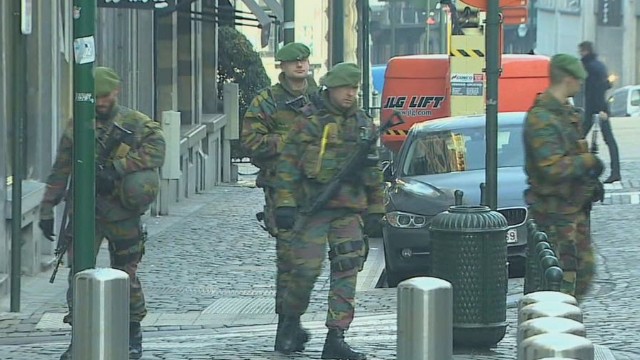
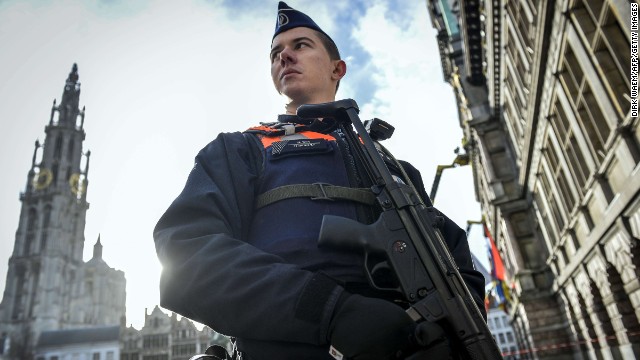
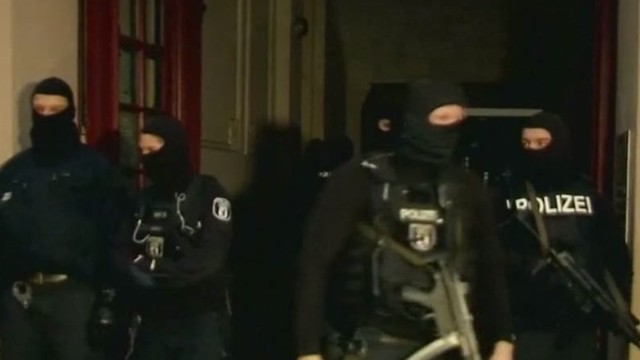
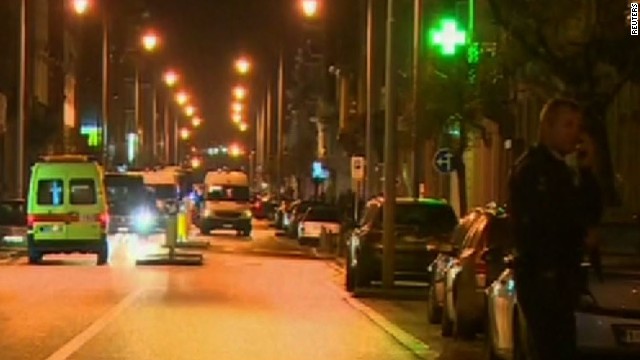
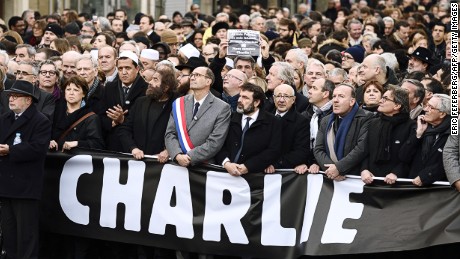
No comments:
Post a Comment